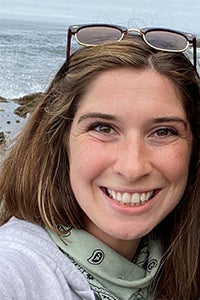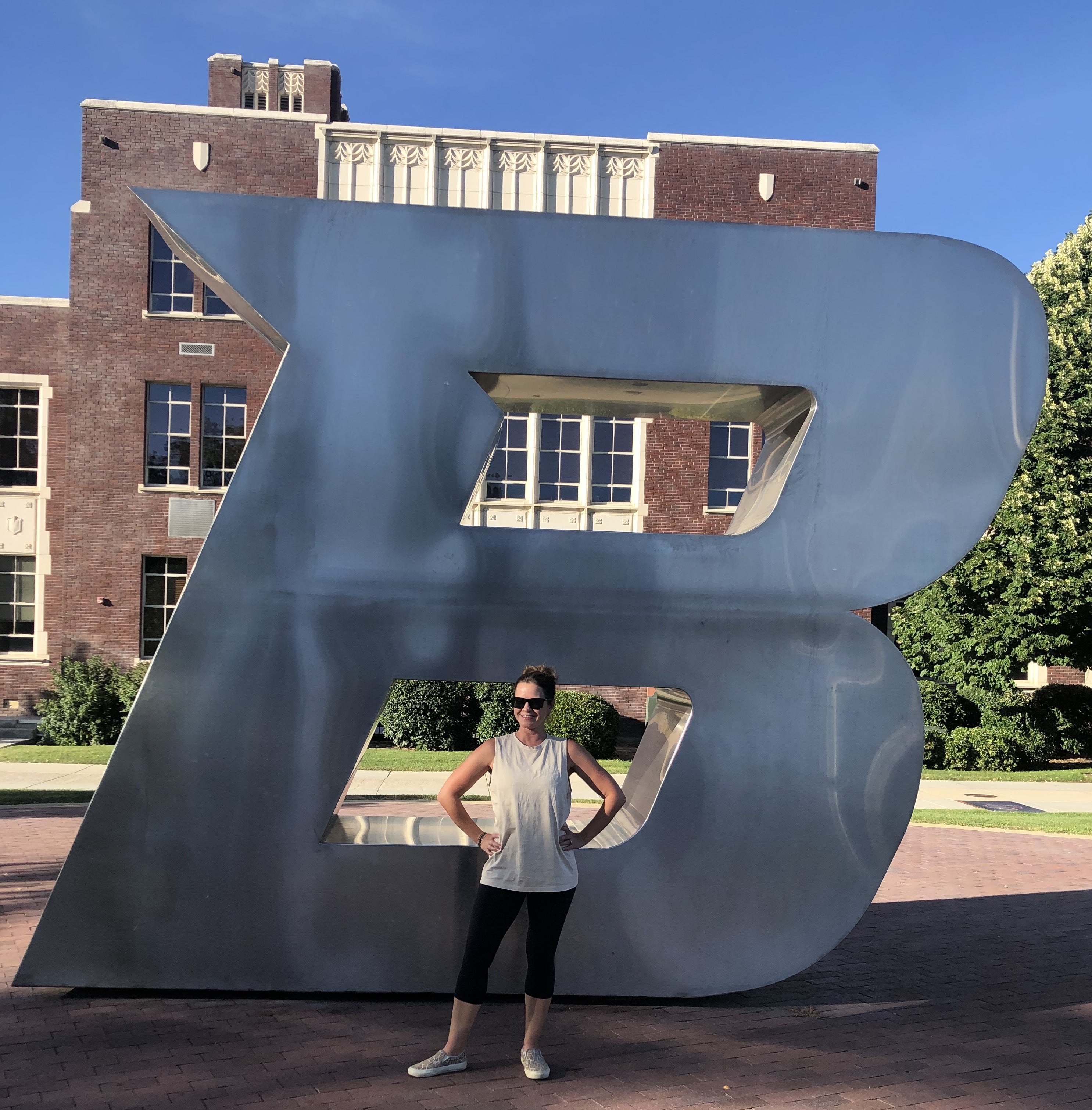Boise State’s new online Master of Science in Genetic Counseling (MSGC) program is underway, and students in the inaugural cohort already are making an impact in the Treasure Valley. This summer, as part of the program’s fieldwork component, students served patients for the first time in local clinics. By the end of the program, each student will have completed a series of three rotations in different specialities amounting to 210 hours working in clinics.

“This program is uniquely situated to face this pandemic head on as we have been doing online, remote learning for the entirety of the program,” said Abigail Bronson, a clinical laboratory technologist and MSGC student located in Rochester, Minnesota.
Bronson’s remote clinical rotation – mostly handled via phone – is with the St. Luke’s Cancer Institute in Boise. From Rochester, she works with four different genetic counselors four days a week, assisting patients who now must rely on telehealth due to COVID-specific restrictions. Her work for St. Luke’s amounts to 25 hours per week.
“Being used to talking on the phone with classmates and with program leadership has helped me to feel more comfortable when engaging with my supervisors and patients, even when we are halfway across the country,” she said.

Sarah Tipton, a nurse practitioner for nearly 20 years, completed her in-person rotation at Saint Alphonsus Regional Medical Center, where she learned how to facilitate a complete patient visit in the genetic counseling clinic. Tipton performed the intake, counseling, shared-decision making and follow-up with patients at a time when the pandemic has altered how her patients feel about seeking medical care and how the care is delivered.
“Many [patients] are weighing risks and benefits, some are putting off potentially life-saving medical screenings, some are experiencing all kinds of anxiety as a result,” Tipton said. “I find that managing their concerns can add to the weight of our own concerns as providers and providers-to-be. While it is challenging, it is also our responsibility to continue to be inventive and creative and supportive with each other and with patients and families.”
Tipton’s pursuit of the MSGC degree is largely due to her interest in genetics and the trove of information that can now be obtained and interpreted with the advances in genetic testing over the last 10 to 20 years. The field of genetic counseling is still relatively sparse. The American Board of Genetic Counseling (ABGC) counted roughly 4,000 certified professionals in the U.S. and Canada in 2016, and the need for genetic counseling outpaces this turnout.
“The future of genetic counseling is sure to continue to grow, evolve and become even more integrated into the way we manage the healthcare and well-being of individuals and families,” Tipton said.

Josie Minick served at St. Luke’s Pediatric Genetic and Metabolic Clinic. Her rotation consisted of 30 hours a week working in the clinic to conduct research, prepare cases and attend meetings, among other duties. This fall, she’s headed to Billings, Montana, for a prenatal and cancer rotation at the Billings Clinic.
“I’ve had many chances to apply the skills that I’ve learned in the program so far, from contracting to taking pedigrees to interpreting and explaining test results,” Minick said. “One of the best things about this rotation has been how much I’ve learned from every interaction – from the skilled staff, the intensive research and the patients themselves. Every day and every case is so different, and I know I’ll be a better genetic counselor for the diverse experience I’ve gotten this summer.”
Minick was inspired to enroll in the program because of its emphasis on collaboration and community. While the field of genetic counseling is highly homogenous, Boise State intentionally structures the master’s program in a way that would be approachable and achievable for a diverse group of applicants, she said.
“Not only am I gaining essential knowledge and skills in this program, but I’m also gaining an amazing community and establishing my own professional network,” said Minick. “The people that I’m learning with and the instructors I’m learning from are my future peers and collaborators, and I couldn’t be in better company.”
Bronson, Tipton and Minick share a common goal of improving communities through genetic counseling for years to come, and the program is the launchpad to achieve that goal.
“This opportunity to be a part of the inaugural class of the Boise State program represents the realization of one of those life-long dreams,” Tipton said.
– By Matt Jones